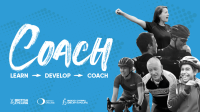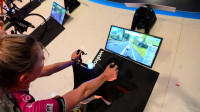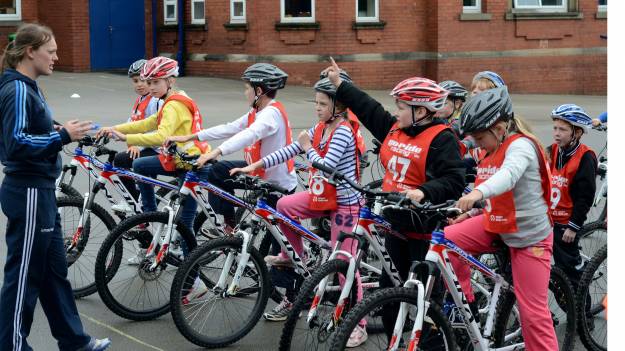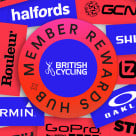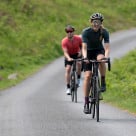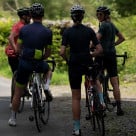Sports Psychology in Cycling
October 2009
Sports psychology is an essential part of any rider's preparation as it plays an important role in cycling performance. Therefore, this months CPD article briefly looks at the role of sports psychologists.
 Sports psychology can be defined as the scientific study of behaviour and mental processes. Psychology has many applied branches that include educational, occupational, health and clinical psychology. Sports psychology is one of these applied branches and is a science where the principles from mainstream psychology are applied to a sport setting such as cycling. Sports psychology has been defined as the scientific study of people and their behaviour in sport and exercise contexts. Sports psychologists apply their knowledge and techniques to help athletes change their behaviour with the aim of enhancing performance.
Sports psychology can be defined as the scientific study of behaviour and mental processes. Psychology has many applied branches that include educational, occupational, health and clinical psychology. Sports psychology is one of these applied branches and is a science where the principles from mainstream psychology are applied to a sport setting such as cycling. Sports psychology has been defined as the scientific study of people and their behaviour in sport and exercise contexts. Sports psychologists apply their knowledge and techniques to help athletes change their behaviour with the aim of enhancing performance.
Sports psychologists have a variety of mental skills techniques that they can use to facilitate positive changes in riders, such as imagery, positive self-talk, relaxation techniques, goal setting and hypnosis. In most cases, riders will use one or a combination of mental skills as part of a pre- or during-performance routine. For example, prior to a time trial, a rider may use a focused breathing routine and positive self-statements to help relaxation and focus. These skills may be teamed with the use of music and a physical warm-up. During an actual race, however, the rider may only use the self-statements to help him restore or maintain concentration.
Sports psychology plays an important role in cycling performance and by having a good understanding of this area will help you become a more effective coach. Typically, riders need to believe they are in control of their performance for important events and to do so they require:
- self-belief
- be able to control their nerves
- maintain their concentration
- control their emotions and be able to motivate themselves

All of these attributes are important for both training and competitive situations and, if maintained, are likely to result in improved performance. In addition, riders must display mental toughness both in training and competition. This includes focusing on success rather than failure, coping with pressure, dealing with and not dwelling on errors, and maintaining composure. Coaches have an active role to play in helping their riders to develop and facilitate strategies to develop these mental skills and attributes. For example, you need to be able to help motivate your riders, increase their confidence when appropriate, focus their attention and relax or energise them before a race or training session.
The role you, as the coach play in providing sports psychology will differ depending on the level of your rider and the support they require. If your rider is working with a sports psychologist then your support should focus on reinforcing the techniques prescribed by them. If not, then your support should focus on providing them with the basic and fundamental tools for developing initial mental techniques.
The use of mental skill strategies should first take place in practice. Only when riders are competent and comfortable in its use should they then look to integrate it into their actual competition routine. Mental skills are like physical skills; they take time to master. Therefore, riders should consider how much time they have invested in developing themselves physically to cycle proficiently - typical responses would usually be ‘x number of years' or ‘x number of hours'. The point here is that mental skills take just as long to develop and nurture as physical skills and are not magic and/or quick fixes. Therefore, when using mental skills, riders should not expect immediate responses or changes in their behaviour, but should expect to expend time and effort on fine-tuning their mindset. Ultimately, mental skills should be an integral part of your riders' preparation and, therefore, there should be an appropriate allocation of time given to physical and mental practice.
The key mental skills that riders should be developing during training are:
 Imagery - Visualising a rider's best race before competition can develop feelings of self-confidence.
Imagery - Visualising a rider's best race before competition can develop feelings of self-confidence.- Goal setting - Riders should be encouraged to set goals for training and competition that are SMARTER.
- Positive self-talk - This is a useful strategy that riders can use prior to and during performance to maintain focus, increase confidence and help them to relax.
- Focused breathing - Riders can experience feelings of relaxation by developing the skill of focused breathing.
Riders of all levels should be encouraged to develop pre-performance routines and use mental skills, where appropriate and should be made aware that such skills can be used in a variety of situations prior to and during training and competition, as well as in everyday life. Mental skills training should be incorporated into coaching programmes as part of rider profiling, annual planning, training prescription and competition planning. This should be delivered, where appropriate, by qualified clinical or sports psychologists.
More information on the role of a sports psychology techniques and mental skills used within cycling can be found within Section 8 of the Level 3 Coaching Handbook: Coaching for Performance. To find an accredited sports psychologist, contact the British Association of Sport and Exercise Sciences (BASES) at www.bases.org.uk or the British Psychological Society (BPS) at www.bps.org.uk.

